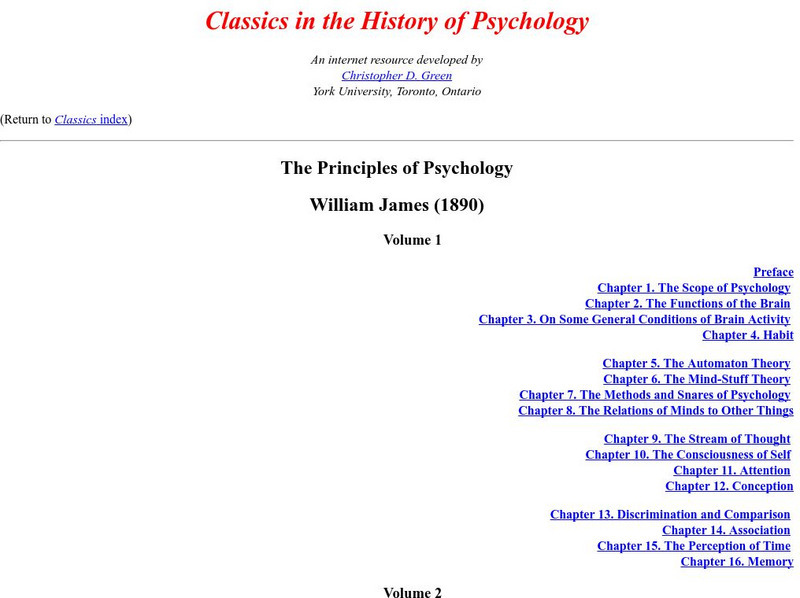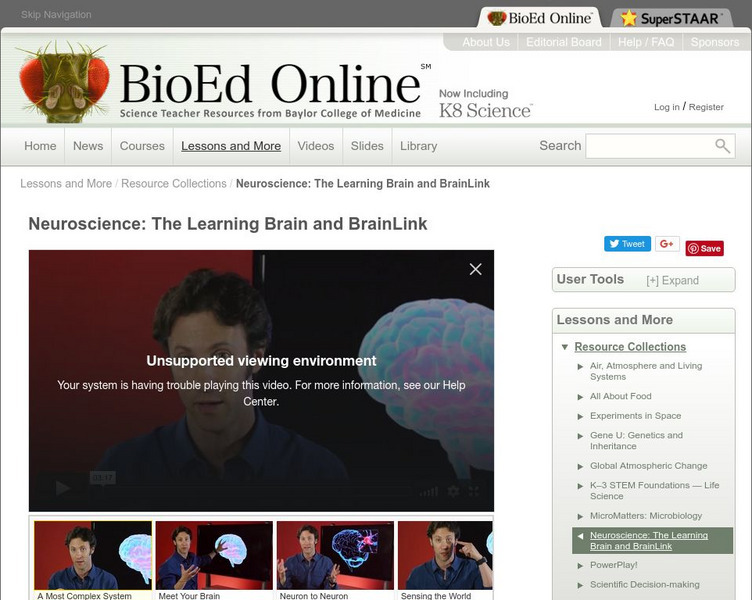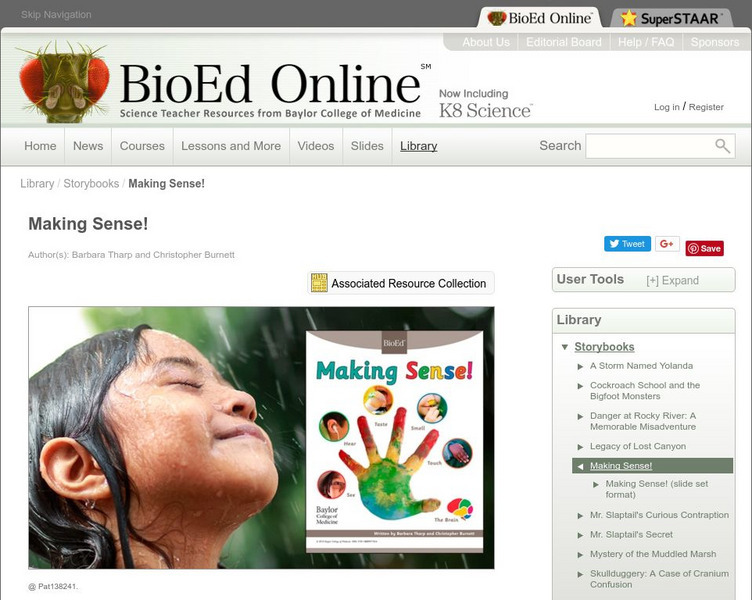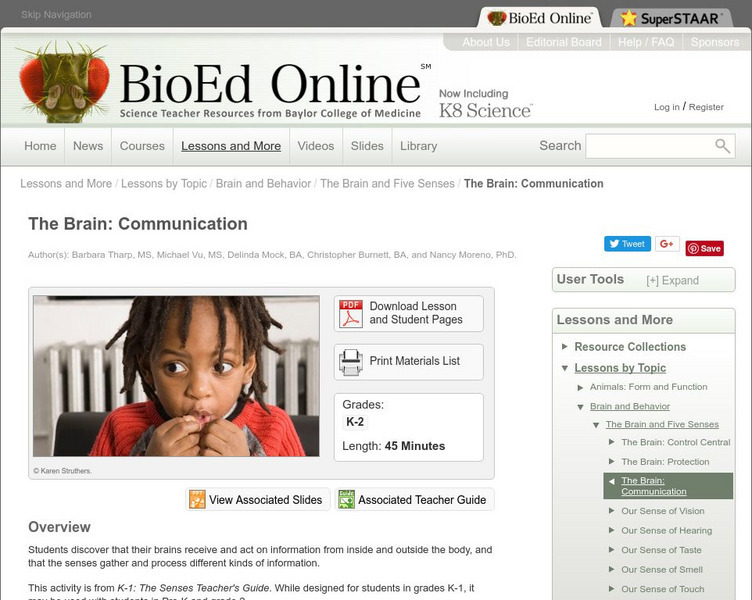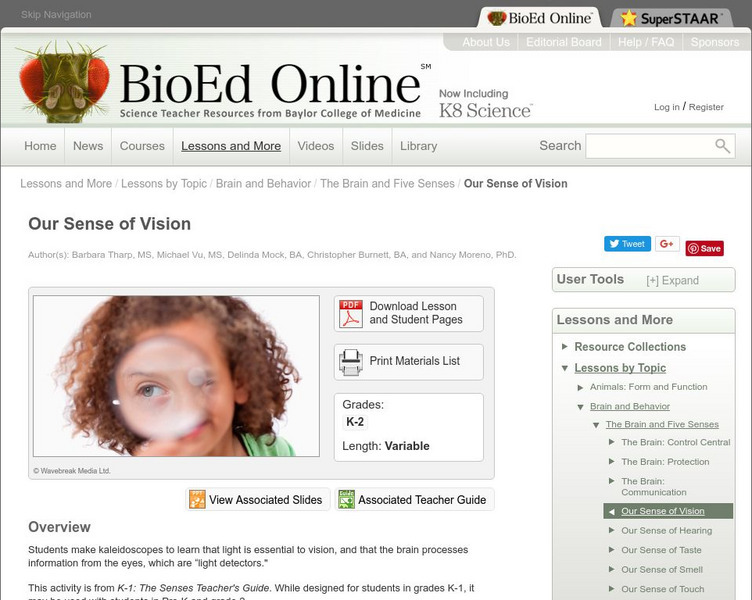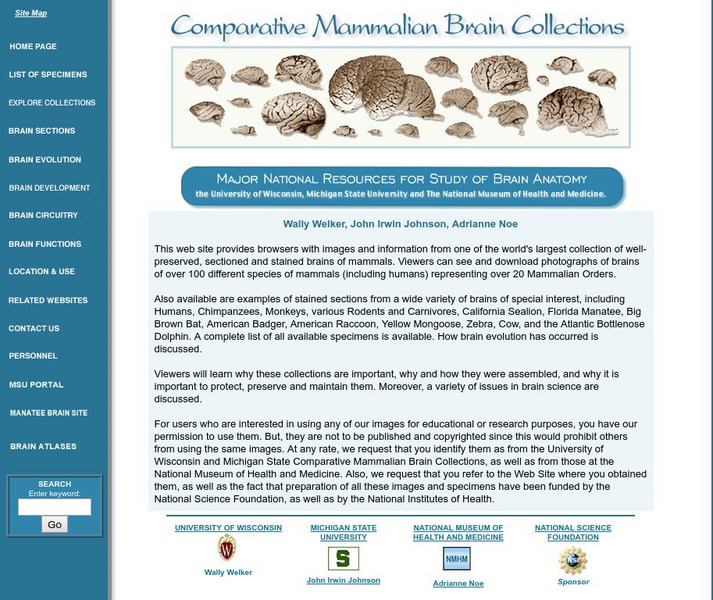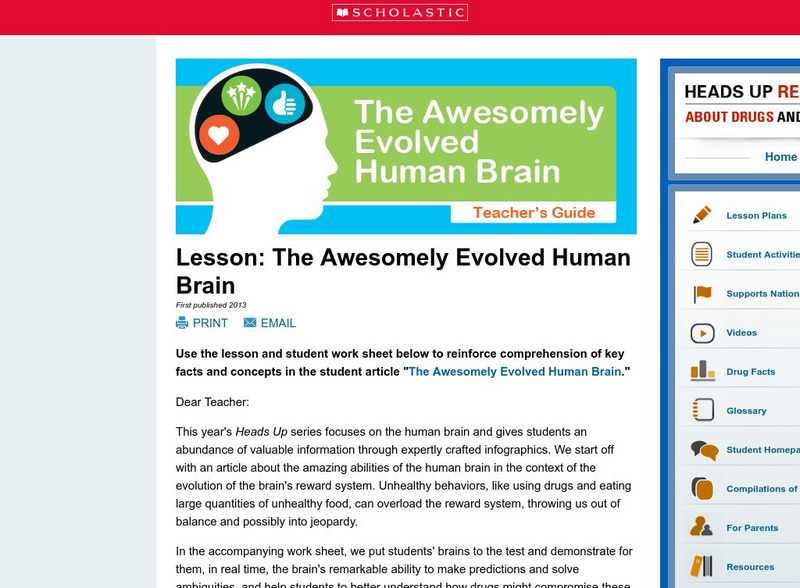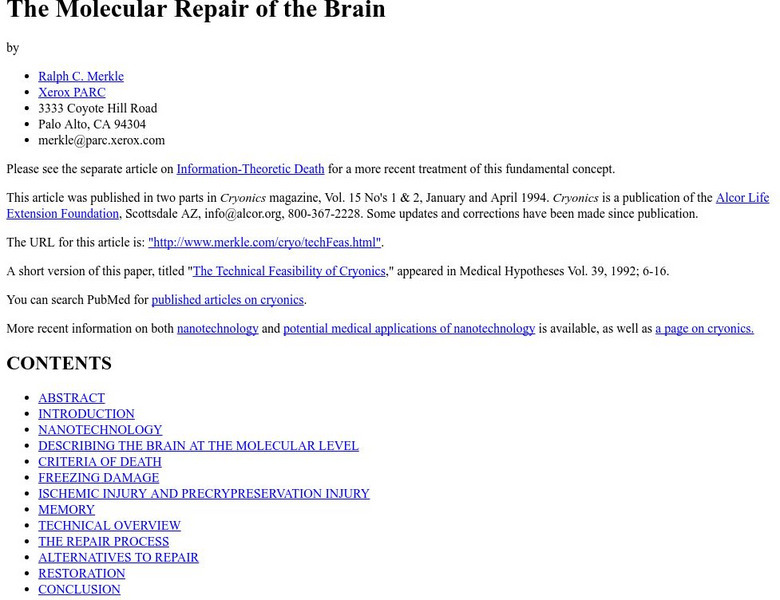Hi, what do you want to do?
Curated OER
Train the Body, Train the Brain
An article from the New York Times, 2010, titled "Phys Ed: Can Exercise Make Kids Smarter?" is the springboard for the six short-answer questions posed by The Learning Network. Have your class read the article, answer the questions, and...
Curated OER
Perception and the Brain
Students experience how the brain adapts over time to changes in what they perceive. In this human perception lesson, students wear special prism goggles that initially disorient the user. Over time, the student is able to adjust to the...
Curated OER
How the Heightened Senses of the Sea Turtle, Elephant, and Eagle Are Evident in the Brain
Students explore the senses of different animals. In this biology lesson plan students will study the animals selected for their grades. The students will learn about the brain and how the senses of that animal have developed.
PBS
Pbs Learning Media: Everest: Test Your Brain Under Low Oxygen Conditions
This interactive feature from the NOVA: "Everest" Web site lets you take the same brain quizzes that researchers have used to test the brain function of climbers on Mount Everest.
PBS
Pbs Learning Media: Brain Geography
Which part of your brain controls your ability to swallow? Your instinct to survive? And how do all the brain's parts function cooperatively? Find out with this interactive feature from the NOVA: "Coma" Web site.
York University
Classics in the History of Psychology: Principles of Psychology by William James
Complete volumes of the two volumes of this work are available for study.
University of Washington
University of Washington: Neuroscience for Kids: Stroop Effect
Do words or colors have more influence over what you read? Try this interactive Stroop Effect test to find out what causes the results.
Science Buddies
Science Buddies:brain Body Connection: Can Exercise Make Our Brains Work Better?
We all know physical exercise is important to keeping our bodies fit. But how important is physical exercise to your brain? In other words, is there any connection between an active body and increased brain power? This is an easy project...
Science Buddies
Science Buddies: Multitasking: Brain Drain or Boost in Efficiency?
Think it's a good idea to plug into iTunes, surf the Web, or watch TV while doing homework or trying to read? Many people do it and claim that jumping from one activity to another keeps their attention level up and even gives their brain...
BioEd Online
Bio Ed Online: The Learning Brain: Neuroscience
This series of videos introduces students to the brain, including why it is so special, its parts and functions and how it recalls memories and stores new information. Other videos explain how the brain processes sensory information and...
BioEd Online
Bio Ed Online: Making Sense!
Making Sense! is a colorful, engaging picture/storybook book that introduces students to the brain and the five senses as they solve mystery picture puzzles. Download the text or watch it in slideshow format.
BioEd Online
Bio Ed Online: The Brain: Communication
How does information from different parts of the body reach the brain? In this lesson students discover that their brains receive and act on information from inside and outside the body, and that the senses gather and process different...
BioEd Online
Bio Ed Online: The Brain: Control Central
What do you know about the brain? In this early learners lesson, learners will explore the basic functions and characteristics of the brain and skull, and also learn about three major structures in the brain: the cerebrum, cerebellum and...
BioEd Online
Bio Ed Online: Our Sense of Vision
Which parts of the body are involved in vision (seeing)? Is light important for vision? In this lesson students make kaleidoscopes to learn that light is essential to vision, and that the brain processes information from the eyes, which...
BioEd Online
Bio Ed Online: Our Sense of Smell
How does our sense of smell work? In this lesson plan young scholars use four different flavors of dry soft drink mix to investigate the sense of smell, and learn that the nose can detect very small particles in air, and transmit the...
BioEd Online
Bio Ed Online: Our Sense of Touch
How does the sense of touch work? Is the sense of touch more sensitive in some parts of the body, such as fingertips, than in others? In this lesson plan students explore the sense of touch by identifying mystery objects with their eyes...
BioEd Online
Bio Ed Online: Using All Our Sources to Understand Our World
How do we use our senses to understand our surroundings? What types of input are provided by the different senses? In this lesson learners use all of their senses to understand that there are different types of sensory receptors in the...
Other
National Museum of Health and Medicine: Comparative Mammalian Brain Collections
This resource could be used for higher level biology or anatomy classes. There are over 100 different species of mammals represented and each has information about physical characteristics, distribution, and pictures of the brain. There...
Annenberg Foundation
Annenberg Learner: The Brain: Teaching Modules
A collection of 32 video learning modules on everything to do with the brain.
Georgia Department of Education
Ga Virtual Learning: Psychology: Biological Foundations
Virtual learning course on human biology and brain function and how it affects our behaviors. Extensive collection of engaging materials, assignments, and activities for review.
Annenberg Foundation
Annenberg Learner: The Human Brain
Explore the human brain, and the role it plays in the nervous system. Students learn about the three main parts of the brain and each of their functions.
Scholastic
Scholastic: The Awesomely Evolved Human Brain
This lesson reinforces comprehension of key facts and concepts in the student article "The Awesomely Evolved Human Brain." Learners will understand that the brain's reward system has evolved to help ensure the survival of the species....
Other
Ralph C. Merkle: Memory
Very technical discussion of modern theory in the science of memory and brain function.
National Institutes of Health
Spatial Short Term Memory Pinpointed in Brain
Examine this press release to understand methods used in the science of psychology to pinpoint functions of the brain.










